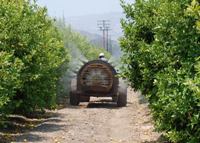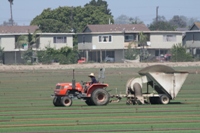
- Agricultural Commissioner
- About Us
- FAQs
- Funding
- How We Are Funded
- County General Fund
- Pesticide Use Reporting
- Oak Death Inspection
- Pierce’s Disease Control
- Pierce’s Disease Nursery Treatments
- Organic Crops Program
- Seed Inspection
- Nursery Inspection
- Farmers Market Inspection
- Land Use Planning
- Pest Control Business Registrations
- Citrus Maturity Inspection
- Programs
- How We Spend Our Time
- Pest Detection and Eradication
- Citrus Inspection and Commodity Regulation
- Pierce’s Disease Control
- Pest Exclusion and Plant Quarantine
- Seed Inspection
- Nursery Inspection
- Farmers Market Inspection
- Egg Quality Control
- Apiary Inspection
- Crop Statistics
- Pesticide Use Enforcement
- NPDES MS4 Permit Compliance Inspections
- Land Use Planning
- Toland Landfill Project
- Weights & Measures
- FORMS/DATA
- Notices
- APAC
- SALC GRANT
- Crop Reports
- Contact Us
- Agricultural Commissioner
- About Us
- FAQs
- Funding
- How We Are Funded
- County General Fund
- Pesticide Use Reporting
- Oak Death Inspection
- Pierce’s Disease Control
- Pierce’s Disease Nursery Treatments
- Organic Crops Program
- Seed Inspection
- Nursery Inspection
- Farmers Market Inspection
- Land Use Planning
- Pest Control Business Registrations
- Citrus Maturity Inspection
- Programs
- How We Spend Our Time
- Pest Detection and Eradication
- Citrus Inspection and Commodity Regulation
- Pierce’s Disease Control
- Pest Exclusion and Plant Quarantine
- Seed Inspection
- Nursery Inspection
- Farmers Market Inspection
- Egg Quality Control
- Apiary Inspection
- Crop Statistics
- Pesticide Use Enforcement
- NPDES MS4 Permit Compliance Inspections
- Land Use Planning
- Toland Landfill Project
- Weights & Measures
- FORMS/DATA
- Notices
- APAC
- SALC GRANT
- Crop Reports
- Contact Us
Pesticide Use Enforcement - FAQs

Pesticide Emergency

The Ag/Urban Interface
Farmers must have operational buffers around fumigation areas. New non-agricultural uses next to farms may require a land use buffer around the non-farming use. See our Land Use section.
FAQS
1. When is a permit required?
A restricted materials permit is required whenever anyone uses a California Restricted Material. These are materials designated as restricted by regulation in CCR Section 6400.
2. What do I need to do before I apply for my permit?
Bring in proof that you are either a certified private or commercial applicator or that you will not be applying the materials yourself, provide a map of your property and any sensitive sites near your property, provide a list of the restricted materials that you plan on using, provide information on what pest control businesses you will be dealing with.
3. How can I become a certified private applicator?
You can take the examination to become a private applicator at our office and you must pass with a score of 70% or above. Study material is available from the Farm Advisor.
4. When are permits and operator identification numbers issued?
Permits are issued from 7:30 – 9:30 a.m. and 12:30 – 2:30 p.m. Monday – Friday. Please make an appointment for permits or work site plans, (805) 933-2926 (Santa Paula) | (805) 388-4222 (Camarillo). Permits and operator identification numbers can be obtained from any of our offices.
5. What is the difference between an operator id and a permit?
An operator identification number is required for anyone who applies a pesticide for an agricultural use. An agricultural use is anything except the following; 1) residential use, 2) industrial or institutional use, 3) structural pest control, 4) use by a licensed veterinarian on an animal, or 5) uses for public health purposes such a mosquito abatement. A permit is only required when the material being used is a California Restricted Material.
6. When am I required to report my pesticide use?
A pesticide use report is required whenever a pesticide is applied for an agricultural use, a California Restricted Material is applied or a pesticide is applied for hire. This means that uses on Public Rights of Way, parks, cemeteries and other recreational areas, reservoirs and irrigation canals and uses by licensed maintenance gardeners must be reported. If the use requires an operator identification number or a permit it must be reported. Pesticide Use Reports are generally due by the 10th of the month following the month of use, unless the pesticide was applied by a commercial applicator on an agricultural crop.
7. Where do I go to register my pest control business?
Pest Control Business registrations can be processed at the Santa Paula District office or the Camarillo District office during normal office hours. An inspector can register your business at the Ventura Office from 7:30 to 9:30 am or from 12:30 to 2:30 pm. Please provide a copy of your business license for the current year.
8. What happens if I am cited by an agricultural inspector for a violation during an inspection?
If you receive a non-compliance on an inspection report, you will generally receive a call from the inspector sometime after the inspection. The inspector will issue you a violation notice which will tell you exactly what you did and what section of the code you were in violation of. This is also your opportunity to discuss the situation with the inspector to make sure that you understand what you are being cited for. The inspection and violation notice will be reviewed by the Supervisor and the Deputy Commissioner and a penalty may or may not be assessed. If you are assessed a penalty you will be given the opportunity to have a hearing to present evidence to the Commissioner as to why you should not be penalized. California has the most stringent pesticide regulations in the nation. Permits are issued in the Santa Paula office from 7:30 – 9:30 a.m. and 12:30 – 2:30 p.m. Monday – Friday. Please make an appointment for permits or work site plans, (805) 933-2926.
A Closed System is required by California Code of Regulations section 6746. For more information on Closed Systems approved by the California Department of Pesticide Regulations go to:


